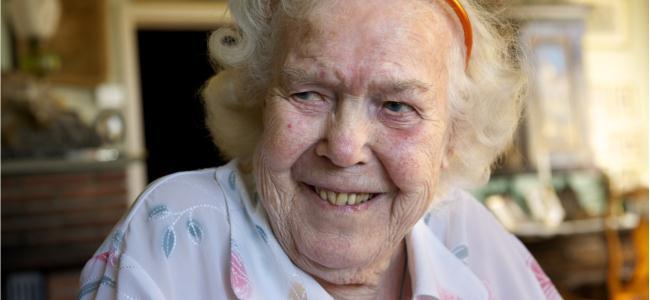For Norwegian medical officer Gerd Semb, helping the South during the Korean War was a matter of conscience, and caring for thousands of sick and wounded civilians and soldiers was “a call to serve.”
Semb, now 93, and four other Norwegian veterans in their 80s traveled once again from the comfort of home to far away South Korea, but this time to take part in a ceremony on Saturday marking the agreement that ended three years of fighting on the peninsula.
Semb, now 93, and four other Norwegian veterans in their 80s traveled once again from the comfort of home to far away South Korea, but this time to take part in a ceremony on Saturday marking the agreement that ended three years of fighting on the peninsula.

It was no peace treaty but secured a tentative peace nonetheless. Sixty years ago, on July 27, 1953, representatives of the United Nations, led by U.S. Army Lt. Gen. William Harrison, met their North Korean counterparts in Panmunjom to sign an armistice agreement ending the three-year long war.
In addition to Semb and her four fellow soldiers, more than 600 Norwegian service men and women maintained the Norwegian Mobile Army Surgical Hospital, or NORMASH, in South Korea from 1951-1954.
NORMASH was first established at Uijeongbu, approximately 20 kilometers north of Seoul and, later, relocated to Dongducheon, another 17 kilometers further north.
The hospital camp treated a massive number of both civilians and soldiers ― some 90,000 passed through its tented medical facilities.
Norway was one of 20 nations that responded to a call by the United Nations and its first secretary-general, veteran Norwegian politician and former Foreign Minister Trygve Lie, to support South Korea and the United States in repelling a North Korean invasion in June 1950.
“I won’t say there is a direct link between the fact that the first U.N. secretary-general was Norwegian and Norway’s participation, but it was still a very important link, because he was a respected politician,” said Norwegian Ambassador to Korea Torbjorn Holthe during a promotional event for a book of photography published by the Norwegian Embassy at the National Library of Korea on Friday.
First published in Norwegian in 2010, a Korean translation of the book, “NORMASH: Our heart buried in Korea,” was published this month to commemorate the 60th anniversary.
“Norway was not obligated but you must remember the Korean War was five years after World War II ended and Norway had suffered a five-year occupation by the Nazis. We felt sympathy, even though Korea was far, far away,” he said.
The five veterans traveled here with Norway’s defense minister, Anne-Grete Strom-Erichsen, to take part in a number of ceremonies including the main one on Saturday marking the signing of the armistice.
“The armistice agreement is not a peace treaty but it has lasted 60 years. Of course, if it is going to be something else ― we all want peace and stability in this region and in this country ― it has to be the two nations here on the peninsula that will decide this and take the initiative,” Strom-Erichsen said at the Friday event.
Though the armistice was no peace treaty, it provided for a truce. While the document left no sense of closure nor marked the final chapter in the war, the five elderly veterans appeared satisfied with the imperfect peace that was achieved and South Korea’s impressive development into a wealthy democracy.
“It makes a strong impression, especially because the ceremony we had on Thursday showed the strong ties between South Korea and Norway. These ties were first established during the Korean War and the field hospital that Norway built up and maintained meant a lot to Koreans,” Strom-Erichsen said. “The hospital was important at the time and it has built a lasting Norwegian-Korean friendship.”
Norway and South Korea also unveiled a new memorial plaque placed beside an already existing Norwegian memorial monument at the Korean National War Memorial.
At that event, the Norwegian ambassador said: “It is both an honor and a pleasure to have five Norwegian veterans from the Korean War joining us for these ceremonies. Not only do they stand as a reminder of the help Norway gave the Republic of Korea in the Korean War, but their return shows the friendship established during the war still remains.”
Though the agreement signed at Panmunjeom 60 years ago remains temporary and tentative, it nonetheless ended a cruel war, he said.
“It has been the only mechanism to try to create stability on the peninsula. Of course it is not perfect but we have nothing else. This is a fact, I think. The alternative is much worse.”
By Philip Iglauer (ephilip2011@heraldcorp.com)
-
Articles by Korea Herald











![[Bridge to Africa] S. Korea-to-Zimbabwe value chains can foster ‘win-win’ cooperation](http://res.heraldm.com/phpwas/restmb_idxmake.php?idx=644&simg=/content/image/2024/05/14/20240514050881_0.jpg&u=20240515223025)







